An Interview With Author and Artist Tom Barczak
I first met Tom some years ago, through mutual friends on Facebook, as so often happens. We soon became friends and then colleagues, writing for author and publisher Janet Morris’ anthology of Heroic Fantasy, Heroika: Dragon Eaters, as well as her wonderful and legendary series, Heroes in Hell, which this spring (2017) will launch its 18th or 19th volume, (I lose track, LOL), Pirates in Hell. Tom is not only a very fine artist and excellent writer, he is also a great father, a wonderful husband, and a true and kind gentleman I’m proud to know. Here are a few things about Tom you may or may not know… things you definitely should know about this talented man.
Thomas Barczak is an artist, turned architect, turned writer, who finally got around to actually writing the stories he started dreaming about as a kid. His work includes the dark epic fantasy, Mouth of the Dragon, the illustrated epic, Veil of the Dragon, the Kindle serials, Awakening Evarun (Parts I-VI) and Wolfbane (Parts 1-2 of 3), along with numerous short stories and flash fiction, including those published in Heroika 1 – Dragon Eaters, Nine Heroes, Terror by Gaslight, and What Scares the Boogeyman, as well as two volumes of the award winning Heroes in Hell series, Dreamers in Hell, and Poets in Hell. He writes simply because he can’t not write. He writes because he needs to tell the stories he already started on way before, in his paintings, in his poetry, and even before that, sitting around a table with friends, slaying dragons.
Here, then, is Tom Barzcak, in his own words, in a wonderful interview that will surely touch your heart.
What and who are some of your influences and inspirations?
My first exposure to fantasy was The Hobbit and Lord of the Rings. That and playing Dungeons and Dragons.
It’s funny. Being a geek is almost main stream today. But back then it was so underground. But it was everything. You read. And then you re-read. There was no internet, so if you didn’t understand something, or disagreed on something, you and your little group of nerd friends would discuss and argue over minute points for hours. Kind of like chat rooms today, but only with real people, whom you had to get along with so you could still play in next weekend’s D&D game. You looked forward to it ALL week. You had to actually wait. As time went on I picked up other influences of course. Today, mine are a small group of authors, some of whom I’ve actually gotten to know, which is pretty cool:
Janet Morris and Chris Morris. I remember seeing their Heroes in Hell series and Thieves World, on the shelf of Waldenbooks when I was a kid. I admire them for their craft, and for their mentorship of me.
Jim Butcher. I fell in love his Codex Alera series. He writes with a depth and weight that I don’t see many fantasy authors write with. He doesn’t preach to you. But he invites you to ask questions about how you look at a great many things.
Walter Rhein writes with a gravity and honesty that does the same thing.
Seth Lindberg does as well.
Honestly there is a lot of fantasy that I don’t like. I’ll talk about that in a bit. But the work that’s good is really good.
I have to add William Bernhardt. Most of his work has been legal thrillers. His Ben Kincaid books were on the NYT best seller list, though he also started writing urban fantasy a few years back. His SHINE series is really good. He taught me structure. He and Robert Ferrier. They both really taught me how to write, through their lectures and through their personal mentoring as well. Funny, both are novelists who have turned back now to a love of poetry. They’re both really good at it too.
How and why did you decide to start writing?
It was kind of a bucket list thing. I’ve always wanted to, I’ve always dabbled, but the catalyst was when my 2 ½ year old daughter Olivia died. I think I needed something to do so I wouldn’t go mad. I needed a creative outlet where it would be safe to bleed. So I started talking to writers. I started going to writer’s groups and workshops. I committed myself to the task of learning how to write a novel. And I will say this, if you are just starting out as a writer, you have to be willing to accept that you are going to write badly. Only from there, could I ever really grow. Mostly, and I will say this to anyone who is new to this, I had to willing to let myself be teachable.
What genres and/or literary style do enjoy writing in the most?
Fantasy, epic and dark. Sword and sorcery. Some Horror. Even my darkest work is redemptive in tone, and my horror is more intellectual than slasher. I am realizing that with so many young protagonists in my work, it is somewhat Young Adult as well. Mostly I just write the story. But those are the categories where they usually end up.
Tell us about your Dragon series, published by Perseid Press, and the latest volume.
My new novel is called Mouth of the Dragon: Prophecy of the Evarun, and is published by Perseid Press. To new readers of my work, it introduces them to the world of the Prophecy of the Evarun, of which there is another novel, Veil of the Dragon, as well as a six part illustrated Kindle serial titled Awakening Evarun.
Mouth of the Dragon: Prophecy of the Evarun is the story of what happens to a prophet when the prophecy he serves turns against him. It is the story of his hunt for a Dragon which lurks in everyone and everything around him, and whose only desire is to possess the prophet who hunts it. It is both epic and intimate.
I wanted to write a new kind of fantasy. I wanted to write a fantasy that honors the genre it dwells in, but at the same time, maybe, redefines hopefully it a little bit as well. I hope that I’ve done that with Mouth of the Dragon. With Mouth of the Dragon: Prophecy of the Evarun, I believe I have. Not arrogantly. Not disrespectfully. But I can’t help but think the reader will question a few things that for so long have been held as canon for a genre that sells itself as one where anything is possible. I hope you never see dragons the same again.
Besides the “entertainment factor,” what do you strive for in your writing?
Depth and weight. I want the reader to gain something other than the passage of time, when they put down the book. I want them to have gained something.
I don’t know that I, personally, have anything more to say more than anybody else. But I do believe if I’m honest as a writer, and true to the story that has been set before me, that once read, I will have given them something. Perhaps something intangible, but it will be something I have given to them, a gift that will last through them and hopefully be passed on to someone else. And I may never know what that was. And I don’t need to. Art is like that. If it’s done right, and if the recipient is willing, then I believe that is exactly what should happen. And writing, I do believe, is art.
Would you say that your stories are more plot-driven or character-driven?
I hope a bit of both. I think they need to be. If the story is only character driven, then that implies there are no larger forces at work. I just don’t think life is like that. Whatever our dogma, religious or atheistic, we all exist in larger plots that we are to varying extents powerless over. To ignore that I think would be unbelievable. If the story is only plot driven, then it will lack intimacy and empathy both. It too, would be unbelievable. And isn’t that the first goal of the writer, to suspend disbelief?
What can you tell us about your latest work(s) in progress?
I am currently working on my third novel, Hands of the Dragon: Prophecy of the Evarun. I am loving it, so far. I am also working on what I hope will be my third story in the Janet and Chris Morris’ Heroes in Hell series. When I’m done with those I have the start of an architectural thriller I am rather excited about. After that, perhaps some poetry.
What are some literary goals you’d like to achieve?
Literary goals: I want to always keep challenging myself. I want to challenge and broaden the depth of my primary genre, fantasy, or of any genre I write in. I want every book, every story, to be better than the one before. I don’t ever want to get lazy, and let my story depend on something someone else has already done. There are no new ideas, but I do believe, as a writer, I have to take responsibility for every one of them.
What genre of fiction have you not yet written for, but plan to in the future?
Hate to say it. Thriller. The kind that so many others do. But like with fantasy, I know I’ll have to do it my way. You can only write what you know. And I don’t know forensics, but as an architect, I do know what makes buildings fail. So I’ve started dabbling with an Architectural Thriller. Lots of destruction and only the love of a son for his mother can stop it. See, it already sounds good.
Name a few of your favorite literary characters and tell us why they are your favorites?
Good question. Making me think. Frodo Baggins, from Lord of the Rings. Tavi, from Codex Alera.
What are some of your all-time favorite films and TV shows?
Star Wars, all of them, and Lord of the Rings.
Tell us about your writing habits, such as: Do you outline extensively? Do you create your characters first, or your plot? Do you listen to music while writing, and if so, what kind?
I believe the story is already written. It’s reality, out there, somewhere. I just get to take peeks of it and tell the reader what I saw. My biggest job is telling it in a format that the reader can understand. That’s where the structure and outlining come in handy. There are some inviolate rules concerning story structure that will either make you or break you. Won’t go into them here but they really are what make a story work. And the best idea can fail if you don’t follow them. So I have a format that I use to make sure I follow them. It involves a loose outline and I write in sections. Not chapters. I don’t write from beginning and end. I bounce around between whatever pieces of the story show themselves to me. The outline keeps things on track and the bouncing takes away any excuse for writer’s block I might have. That, and I’ve gotten to learn to write 15 minutes at time. No excuse for not writing. I do listen to music. Film scores, or classical, mostly. Outside of those, I really like Dead Can Dance.
What else can you tell us about yourself and your reading habits?
I don’t read nearly enough. Not as much as I would like to. When I am doing good at it though, I might read 20 minutes a day. I would love to have the time to read more.
What are you working on now? What can we expect next from you?
Bigger. Better. More. Seriously.
There are so many challenges as a writer I would like to take. So many paths I’ve yet to see others try and take. Some of them no one may ever know but me, but I think I still have to take them. You asked me in the beginning why I started writing. One of the reasons is simple. Because I want to write the kind of stories that appeal to me. Hopefully they will appeal to a lot of other people as well, of course. But I have to believe I got this gig for a reason. Other people have their gigs. But this gig, this one is mine. I plan on taking it as far as it can go.
Thank you for such a great interview, Tom. It has been a pleasure, and I look forward to Mouth of the Dragon. I guess I’ll be soon sharing the covers of another Heroes in Hell volume with you.
Many blessings to you, my friend!
Tom’s Amazon Author page — amazon.com/Tom-Barczak/e/B006SOKHMI
Perseid Press/Ignite Your Imagination — theperseidpress.com
Tom’s Page: Veil of the Dragon — tombarczak.com
Read an Excerpt from Mouth of the Dragon — blackgate.com/2017/02/21/black-gate-online-fiction-mouth-of-the-dragon-by-tom-barczak
Tom’s Facebook Page — facebook.com/thomas.barczak

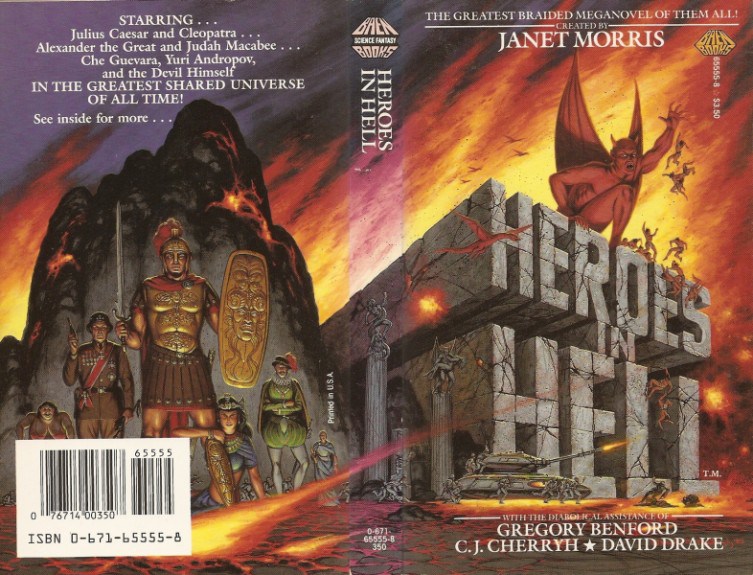
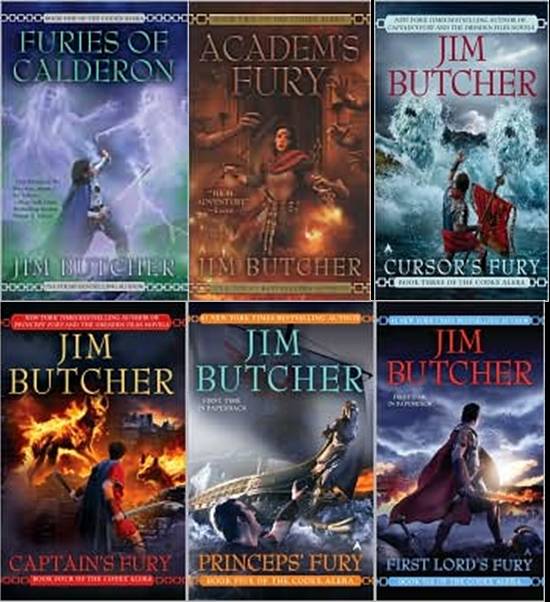
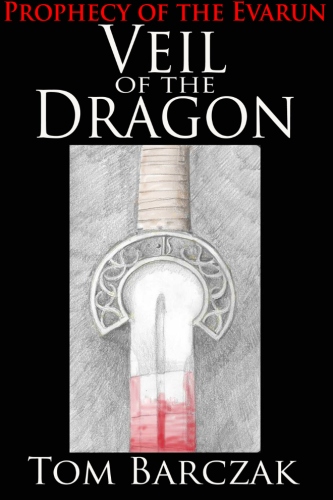
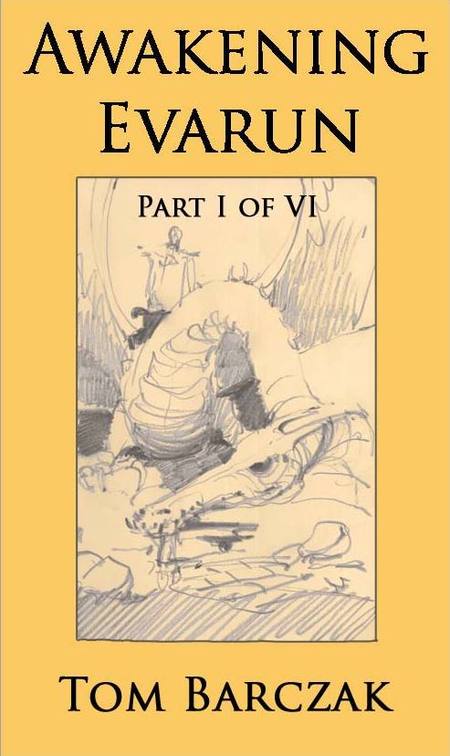
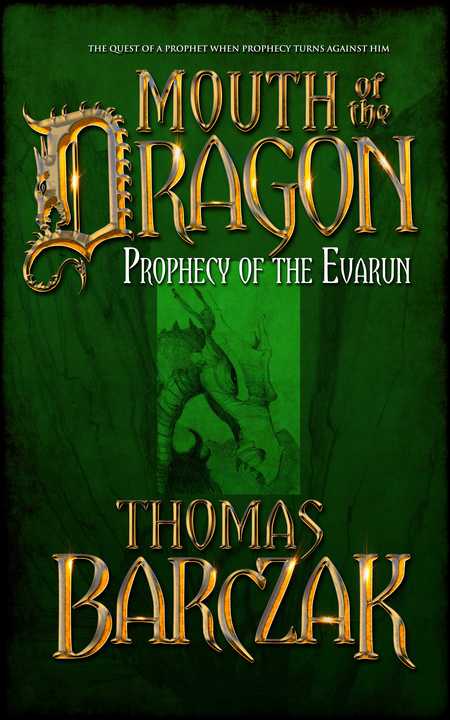
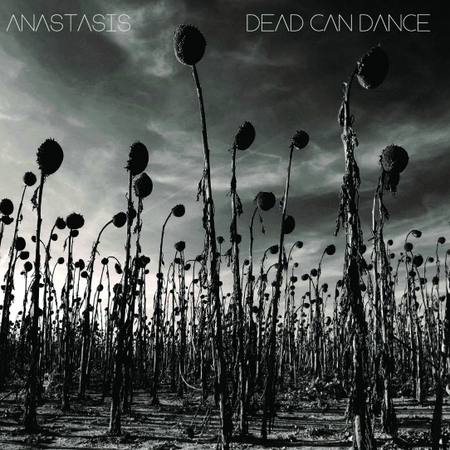
Joe, thank you and Blackgate Magazine both for the wonderful interview. It was a lot of fun to do.
Tom, you’re very welcome. I had fun and enjoyed reading your answers. I’m glad you’re pleased with the the interview and especially John O’Neill’s wonderful presentation.